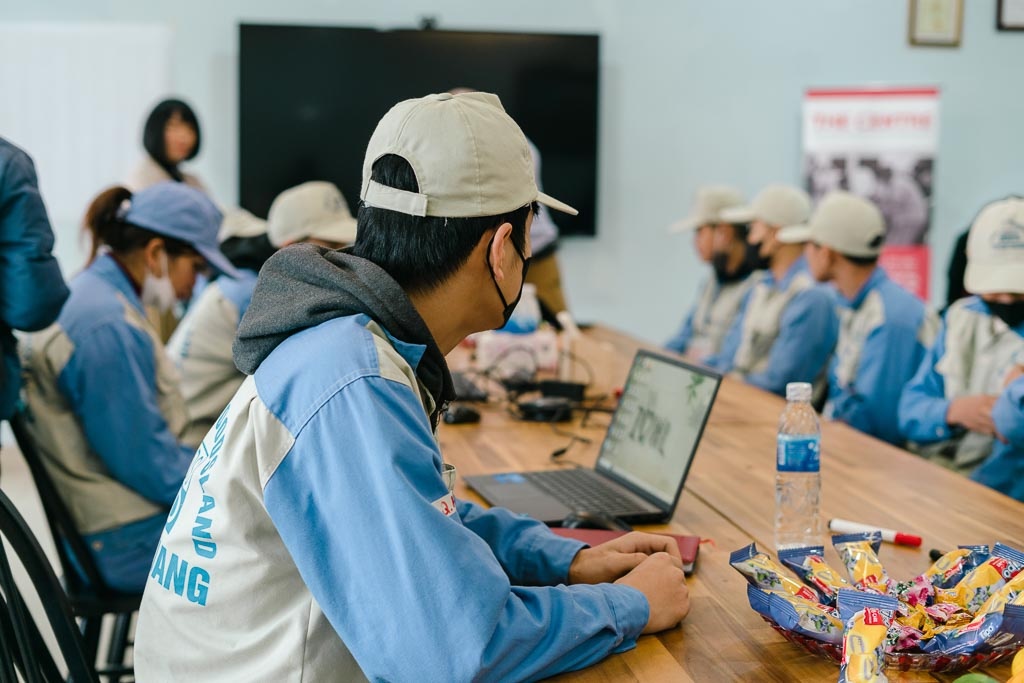

In 2023, The Centre for Child Rights and Business undertook a study for the Work: No Child’s Business alliance, diving deep into the barriers and potential opportunities young people face in accessing decent work after the pandemic. This alliance, led by Save the Children Netherlands, UNICEF Netherlands, and the Stop Child Labour Coalition, with support from the Netherlands Ministry of Foreign Affairs, is committed to ensuring that children and youth are free from child labour and can claim their rights to education and a dignified working future.
Through this research, The Centre aimed to uncover critical insights that could help shape future interventions for youth employment in Vietnam. Using a mix of focus group discussions, surveys, and interviews with 41 youth and potential employers, alongside input from international buyers and organisations like Better Work Vietnam (BWV), the study brought together a diverse range of perspectives to better understand the challenges and prospects facing young workers today.
The study's core focus was twofold: first, to capture the reality of youth employment post-pandemic, and second, to uncover the attitudes and hiring practices of international buyers and suppliers in Vietnam's garment supply chain.
For Youth and Young Workers, the Study Asked:
What is the current employment status of young people, and what drives their decisions as they navigate the job market?
What risks are they exposed to in both current and past jobs?
Are they able to access decent work, and what do their working conditions look like? What role do factory jobs play in their ambitions?
For International Buyers and Suppliers:
What factors influence suppliers when recruiting youth workers aged 15 to under 18?
How does the dynamic garment industry create opportunities—or risks—for young workers in this rapidly shifting post-pandemic world?
Unpacking the Findings: Challenges and Opportunities
One theme that emerged is that many young people are locked out of formal employment, especially in factories, due to restrictive hiring policies that exclude those under 18. This policy not only limits their job options but also pushes them toward informal work where they lack basic protections. Yet, many youth expressed a strong desire to secure formal factory jobs, a safer and more structured environment that offers growth potential.
On the flip side, international buyers and suppliers have an opportunity to change the narrative. By embedding youth-friendly hiring practices and access-to-decent-work programmes into their supply chains, they can build inclusive, child labour-free workplaces. These initiatives don’t just meet ethical standards; they create a pipeline for skilled, young talent that strengthens the business while empowering youth.
The Path Forward: Collaboration is Key
The study’s findings point to one undeniable fact: tackling child labour and ensuring access to decent work for young people requires collective action. Governments, the private sector, and young workers themselves must come together to create solutions that work for everyone.
For businesses, this means more than compliance: it’s about seizing the opportunity to make a real impact. From investing in decent-access-to-work-for-youth programmes to nurturing youth in regulated environments, companies can lead the charge in fostering an inclusive and sustainable workforce. Buyers, in particular, are uniquely positioned to influence suppliers and drive this change at the source.
The study lays out actionable recommendations for governments, businesses, and young workers to proactively address these challenges. Download the full report below to dive deeper into the findings and learn how your business can contribute to building a youth-inclusive workforce.
Click here to learn how we help brands and suppliers manage young workers, prevent child labour, and create a talent pipeline. Contact us to explore how we can support your business.
Related Articles:
Watch: Lessons from a Factory's Access-to-Decent-Work-for-Youth Programme in Vietnam
Download the Study:
By using this website, you agree to our use of cookies. We use cookies to provide you with a great experience and to help our website run effectively.